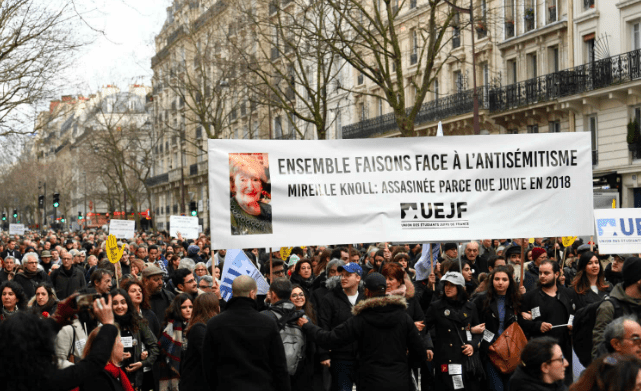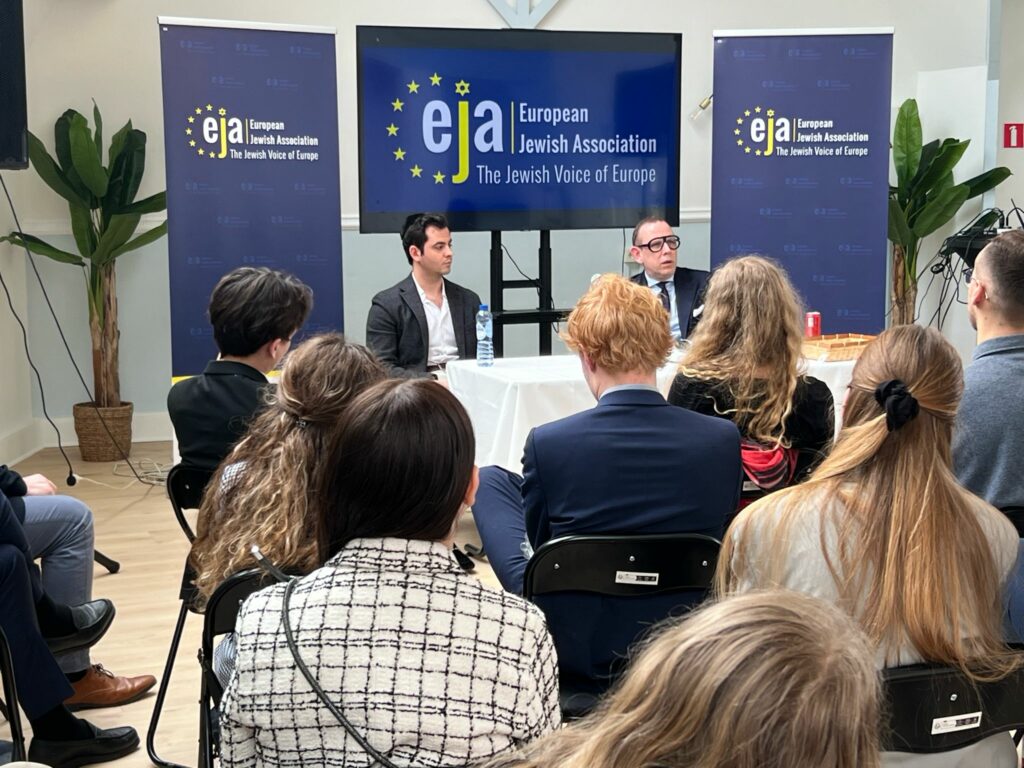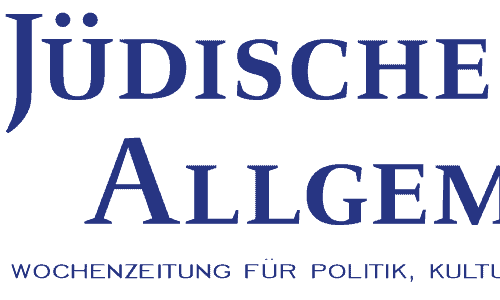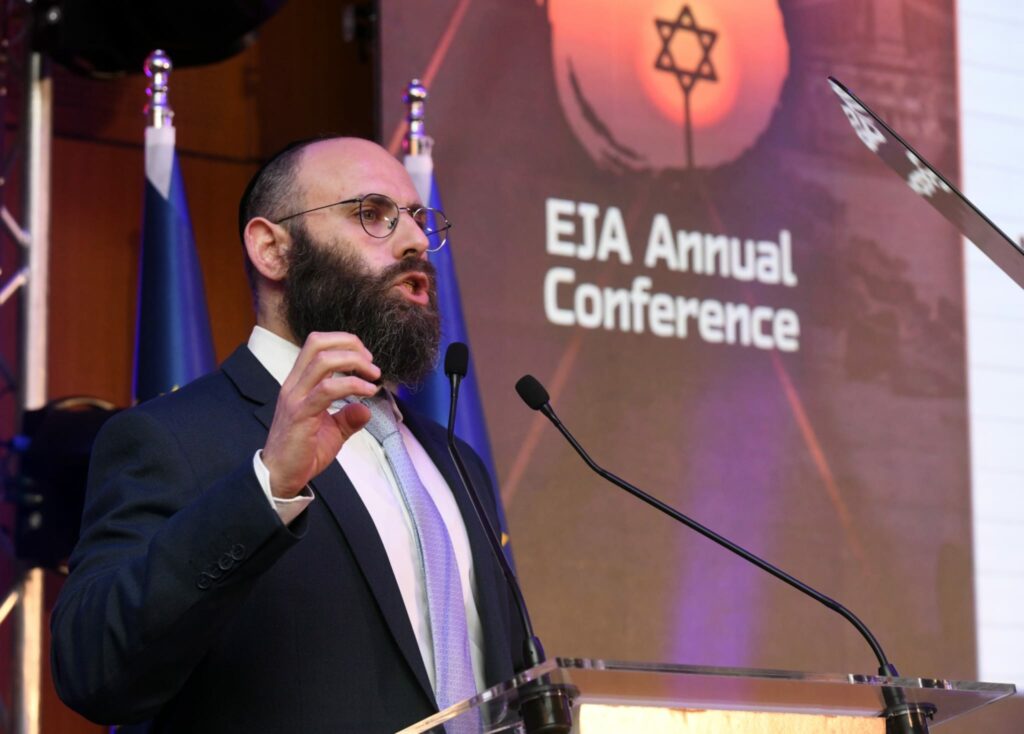More than 300 French dignitaries and stars have signed a manifesto denouncing a “new anti-Semitism” marked by “Islamist radicalisation” after a string of killings of Jews, to be published in Le Figaro newspaper Sunday.
The country’s half-a-million-plus Jewish community is the largest in Europe but has been hit by a wave of emigration to Israel in the past two decades, partly due to the emergence of virulent anti-Semitism in predominantly immigrant neighbourhoods.
“We demand that the fight against this democratic failure that is anti-Semitism becomes a national cause before it’s too late. Before France is no longer France,” reads the manifesto co-signed by politicians from the left and right including ex-president Nicolas Sarkozy and celebrities like actor Gerard Depardieu.
The signatories condemned what they called a “quiet ethnic purging” driven by rising Islamist radicalism particularly in working-class neighbourhoods.
They also accused the media of remaining silent on the matter.
“In our recent history, 11 Jews have been assassinated — and some tortured — by radical Islamists because they were Jewish,” the declaration said.
The murders referenced reach as far back as 2006 and include the 2012 deadly shooting of three schoolchildren and a teacher at a Jewish school by Islamist gunman Mohammed Merah in the southwestern city of Toulouse.
Three years later, an associate of the two brothers who massacred a group of cartoonists at satirical newspaper Charlie Hebdo killed four people in a hostage-taking at a Jewish supermarket in Paris.
In April 2017, an Orthodox Jewish woman in her sixties was thrown out of the window of her Paris flat by a neighbour shouting “Allahu Akhbar” (God is greatest).
The latest attack to rock France took place last month when two perpetrators stabbed an 85-year-old Jewish woman 11 times before setting her body on fire, in a crime treated as anti-Semitic.
Her brutal death sent shockwaves through France and prompted 30,000 people to join a march in her memory.
Condemning the “dreadful” killing, President Emmanuel Macron had reiterated his determination to fighting anti-Semitism.
“French Jews are 25 times more at risk of being attacked than their fellow Muslim citizens,” according to the manifesto.
It added that some 50,000 Jews had been “forced to move because they were no longer in safety in certain cities and because their children could no longer go to school”.
The article was published in The Local
“We demand that the fight against this democratic failure that is anti-Semitism becomes a national cause before it’s too late. Before France is no longer France,” reads the manifesto co-signed by politicians from the left and right including ex-president Nicolas Sarkozy and celebrities like actor Gerard Depardieu.
The signatories condemned what they called a “quiet ethnic purging” driven by rising Islamist radicalism particularly in working-class neighbourhoods.
They also accused the media of remaining silent on the matter.
“In our recent history, 11 Jews have been assassinated — and some tortured — by radical Islamists because they were Jewish,” the declaration said.
The murders referenced reach as far back as 2006 and include the 2012 deadly shooting of three schoolchildren and a teacher at a Jewish school by Islamist gunman Mohammed Merah in the southwestern city of Toulouse.
Three years later, an associate of the two brothers who massacred a group of cartoonists at satirical newspaper Charlie Hebdo killed four people in a hostage-taking at a Jewish supermarket in Paris.
In April 2017, an Orthodox Jewish woman in her sixties was thrown out of the window of her Paris flat by a neighbour shouting “Allahu Akhbar” (God is greatest).
The latest attack to rock France took place last month when two perpetrators stabbed an 85-year-old Jewish woman 11 times before setting her body on fire, in a crime treated as anti-Semitic.
Her brutal death sent shockwaves through France and prompted 30,000 people to join a march in her memory.
Condemning the “dreadful” killing, President Emmanuel Macron had reiterated his determination to fighting anti-Semitism.
“French Jews are 25 times more at risk of being attacked than their fellow Muslim citizens,” according to the manifesto.
It added that some 50,000 Jews had been “forced to move because they were no longer in safety in certain cities and because their children could no longer go to school”.
The article was published in The Local














